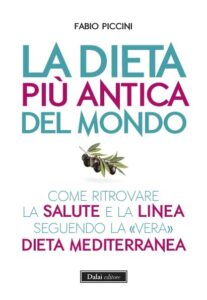The longevity and excellent health status of the population of Crete has been attributed to its lifestyle and dietary habits. Yet, the impact of Greek Orthodox Christian Church fasting on these dietary habits has never been studied. These rules mainly prescribe the periodic abstention from meat, fish, dairy products, eggs and cheese, as well as abstention from olive oil consumption on certain Wednesdays and Fridays and similar restrictions throughout the 48 days of Lent, the 15 days of the Assumption in August and the 40 days before Christmas.
However, it is indeed the case that this habit was not noted neither in the famous Ancel Key’s Seven Countries study (the paper who first defined the mediterranean as being the best diet on earth), nor any attempt was made to differentiate between fasters and non-fasters. In my opinion this was a remarkable and troublesome omission.
The Greek Orthodox Church prescribes almost 180 days of fasting per year. It is unknown to what extent the Cretans who were the original subjects of the Seven Countries Study and who fasted during Lent also followed the precepts of their Church throughout the year, and thus on how many days in total and to what extent the Cretan participants of the Seven Countries Study fasted.
Therefore, it still remains unknown whether the results of the Seven Countries Study in Crete, which have been very widely cited (and have crucially influenced dietary guidelines and industrial practices all over the world), were about olive oil in particular, the Mediterranean diet in general or the beneficial effects of fasting in the sense of regular restriction of certain foods, notably those of animal origin.
Why did Ancel Keys neglect the main religion of Crete, and the relevance of its dietary rules to human health? It is unlikely that he and his co-workers in Crete were unaware of the practice of fasting. Was it that in his country of origin, the USA, fasting is rarely observed except as a vestigial gesture at Lent? Or because fasting, undertaken for any reason, was and still is thought to be irrelevant, bizarre or even dangerous? Or because if study designs allow for those people who do not always eat three square meals every day, the results are too complicated to interpret? Or because nutritionists who want to be seen as credible scientists eschew religion in their professional lives? Or what?
As a matter of fact, dietary restriction has been shown to have several health benefits including increased insulin sensitivity, stress resistance, reduced morbidity, and increased life span. The mechanism remains unknown, but the need for a long-term reduction in caloric intake to achieve these benefits has been assumed. We currently know that when mice are maintained on an intermittent fasting (alternate-day fasting) dietary-restriction regimen their overall food intake is not decreased and their body weight is maintained. Nevertheless, intermittent fasting resulted in beneficial effects that met or exceeded those of caloric restriction including reduced serum glucose and insulin levels and increased resistance of neurons in the brain to excitotoxic stress. Intermittent fasting therefore has beneficial effects on glucose regulation and neuronal resistance to injury in these mice that are independent of caloric intake.
The beneficial effects of intermittent fasting and caloric restriction result from at least two mechanisms — reduced oxidative damage and increased cellular stress resistance.
Recent findings suggest that some of the beneficial effects of intermittent fasting on both the cardiovascular system and the brain are mediated by brain-derived neurotrophic factor signaling in the brain. Interestingly, cellular and molecular effects of intermittent fasting and caloric restriction on the cardiovascular system and the brain are similar to those of regular physical exercise, suggesting shared mechanisms.
Unfortunately, to build the society and technological advances that we are used to, we have left behind the feeding patterns of our ancient ancestors in favor of constant mental activity and limited physical exercise. Due to increases in our day to day activity we have an increased energy requirement while our physiology is largely still geared to a feast-and-famine pattern of energy intake characteristic of our hunter-gatherer homo-sapiens ancestors. According to neuroscientists and gerontologists, this dilemma between our modern society behavior and our ancient physiology will represent a recurring problem for years to come.
If you are interested in learning more about the mediterranean diet and intermittent fasting or in knowing how to implement a simple intermittent fasting protocol into your eating habits, go check my new book “LA DIETA PIU’ ANTICA DEL MONDO” (Baldini, Castoldi e Dalai, 2013) and you’ll discover how three simple IF protocols can make you stronger, healthier and possibly…extend your life!



